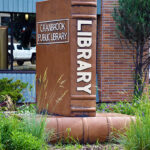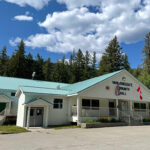Home »

Uncommon touch to Safer Than Houses
Book Review
By Derryll White
Fyfield, Frances (2005). ‘Safer Than Houses’
I don’t know anything about Frances Fyfield, but when I read Ian Rankin saying her knowledge of the soul was second to none, I thought I should at least peek. I was quickly entranced by the concept that her lead character, Sarah Fortune, was defense lawyer turned hooker. I thought, wow, how many ways are there for a lawyer to screw a client?
This is an intricate novel. I can think of no better word. Things fold back on themselves, forcing the reader to intuit how they will meet or have met. The same with the characters, intimately involved with each other even when they don’t yet know it – the reader knows it. Fyfield is extremely careful with words even though she spends them freely. She is very good at taking a simple word such as “dislike” and constructing around it sentences, in some instances paragraphs, that leads the reader to finally hold the word differently, caress it with the tongue, roll it around in the mind. To my way of thinking a good writer, as she loves words.
Fire, the all-consuming fear in everyone’s mind if they stop to think about it, is the element Frances Fyfield uses to stitch her disparate characters together. With the ability to consume everything, fire provides the connecting thread into the minds of the novel’s major characters. And Fyfield explores those minds artfully, giving the reader pause at many points to examine aspects of self, of desire, of love, of need.
Fyfield is interested in soul, in the inner understandings of “self” and “other” which allows one to move past the surface, the sex appeal, the gloss to an understanding of life and self which permits a freedom that all of us aspire to and few achieve. She forces me to examine my own psyche in order to understand how her characters progress. I definitely like that, becoming a part of the novel as I explore my own reasons for trusting and opening myself to select others. And always the movement in her novel is predicated on action. Not the surface action of chases, shots, blood but the real action of moving the self forward toward understanding, realization, even enlightenment.
A very good writer, Frances Fyfield, who pays strict attention to the inner workings of men and women, how they greet the day, how they employ body and mind to reconcile both their environment and self-worth. She has an uncommon touch, a gracious language and style. I will definitely read more of her.
********
Excerpts from the novel:
MEN – The urge to tear the paper into small pieces was certainly strong, but on mature reflection she decided it could all wait until the morning, since emergencies were always the inventions of men.
WOMEN – “Fancy you criticising deference in a wife,” Sarah said. “You used to treat Ernest like Lord and Master.”
“We all have to PRETEND, you of all people know that. It’s the art of maintaining control.”
DEATH – Ernest always had me scrimping and economising and now I’ve got oodles. Never felt secure before. I’d rather he was alive, of course, but the only compensation for death is the opportunity to behave quite differently. He gave me the freedom, the dear man.
MASSAGE – To be frank, she was sick of the touching, stroking and kneading. Grief made her sick of it, everything made her sick of bones and flesh…. She was a long way from that first flush of idealism; the belief that she held in her hands the alleviation of pain, the dispensing of comfort, the curing of lives and the giving of hope. A creative healer, without years of wasted medical training which turned out pig-headed doctors.
MEN – ‘I can’t afford it.’ There was something very unmanly about that just as there was about wanting your own body to stay as good as it could be at fifty plus. Being a man was difficult. Whatever else it involved, it required cash.
ARSON – The smoke, ballooning lazily from the windows, had gathered a small group, paralysed with curiosity. Always happened, but any sane person who saw or smelled smoke should run away, the way a dog would, because anything could happen. Animals knew best. Fire did not have a steady, linear progress; it was voracious and unpredictable, demanding evasion and respect. Still, he was only human; waited and watched, for a minute, like all the rest, only with a more professional interest.
DISLIKE – …another person’s desire could certainly add a whole new dimension to native dislike and put them way beyond the pale of logical consideration. If the other wanted to possess your body, wanted to claw at you and touch you, and you found it unimaginable, then you hated them for embarrassing you. For putting you in the position of having to explain, evade, shrink away, justify self, avoid giving offense …unreciprocated lust was tyrrany.
MEN – Time to find another fuck. All very well having your manhood proved, but not if it made you incapable of thinking of anything else. Christ, it was difficult, being a man.
ARSON – He was longing for the good old days of straightforward instructions, just torch it, Al. The warehouse where they couldn’t pay for the ordered goods; the shop where they wouldn’t pay for the goods; the taking of someone else’s business for the good of the competition; the amusement arcade with more in insurance than profit; the building where the developer couldn’t get planning permission and was stuck with a preservation order; a couple of churches for the same reason. Buildings and stock worth more on paper than they were ever going to make. It was only money.
WEATHER – The cold had relented; in the last reaches of afternoon, the daylight was becoming a visible promise of colour, and in the square she now regarded as her own, spring had really begun with a sly, obdurate hope. The crocus shoots were an inch above ground, and the buds on the barren shrubs began to compete with the solid evergreens…. she could understand the temptation to talk to plants, because spring was relentless in its determination.
MEN – It had been wrong to underestimate him, treat him like a boy. Once JT succumbed to the violent temptations which beset him, it would not be pretty. He was not fraying at the edges any more; he was strong. Blokes did that; turned old overnight, vicious in a day. They did it more often than they turned from sour to sweet.
KNOWLEDGE OF SELF – She shrugged deeper into her coat, with the thought that philosophical considerations, however deep or shallow, did not become her any more than they did the progress of nature. A plant did not, after all, consider its situation, since the situation was something it had arrived at.
UNDERSTANDING – Everyone had to earn a living somehow. He had to exploit his talents, as she did hers. No one really owned anything, anyway; it was vain to think otherwise. Sarah consulted her own knowledge of him, her instincts to trust him, and rather to her surprise, found it was still sound.
CONSCIENCE – She first had to deal with debt and the weight of this oppressive conscience. Conscience was only cured by positive action, doing what she COULD do, or might be able to do, rather than dwelling on what she could not.
BELIEF – The shunned shunned back. The vast majority had good in them, if only someone bothered to look. Or so she had always tried to convince herself because, with a couple of notable exceptions, like Charles Tysall, here life had proved her own thesis. Psychopaths were rarer than sad, self-destructive souls, perpetrating their own delusions and mistakes. Decency was in the majority; human beings reacted to one another in accordance with their own preconceptions.
FEAR – That’s what happens with people you fear. They feed on it, in your imagination, like a fire with oxygen, and grow into their own legends.
MEN – She looked at him, realising not for the first time, that she would never understand the complex, logical reactions of men.
TRUST – Wanting the one they trusted by instinct, even a stranger, rather than the ones they were supposed to love. It gave him a brief sensation of pride, in a morning of unparalleled bleakness, that Dulcie had picked on him. He was addicted to being trusted. Trusted to set a place on fire, trusted to never tell a secret, to do what he said he would do, never to grass, and above all, being trusted by a woman. It took the edge off the nightmare.
MEN – She had made him feel real. Proved his fucking manhood, taught him looks didn’t matter, trusted him as she did now. Accepted him as she did now. Taken him straight off a Park Square bench, knowing fine which particular muscle a humble man needed to exercise; knew that what he really needed was belief that some woman, any woman, might have him, the way they had before.







